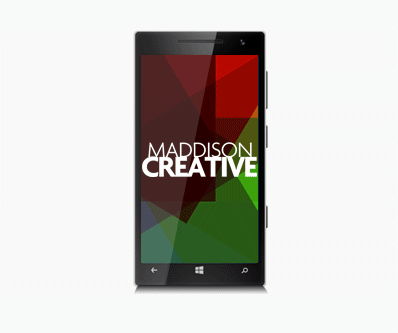We build websites for any size of business and for any device
How do we measure web design success? What reporting is available for websites?
If you own a shop, you're aware of trends - maybe Friday evening is always busy in a fish & chip shop, as is Saturday lunchtime. You know how much you took on any given day, and how many fish you got through, but beyond that, the details of your success elude you. How many people looked at the menu on the pavement then walked away? How many people came in your shop but didn't buy? And for what reason? Which were your busiest tables? Who tried to find a seat but couldn't and went to the chippy up the road? How long did it take people to finish their fish supper and leave?
With the web and the web-tools we have available now you can find out all of that! Who came to your site, where they live, what time they visited, how long they spent on your site, which links they clicked on, how many pages they looked at, whether or not they bought anything, if they watched your video or downloaded your guide, if they read your opening spiel on your homepage and decided that your site wasn't for them.
The same applies for your campaigns. You can get any number of metrics to determine whether or not your promotion was a success, which parts of it were well received and which bits you can improve in order to make your campaign a resounding success next time.
How about Multimedia Content?
In a recent survey it has been revealed that multimedia content holds a user's attention for more than twice as long as traditional written/text content, and in an attempt to keep users engaged for as long as possible, more and more websites are adopting an array of multimedia to get across their message.
Modern users of the internet are becoming more selective when it comes to how they prefer their content delivered with four times as many web users would prefer to watch a video than to read about it, and the technology is driving that demand. By the end of this year, it is estimated that 74% of all internet traffic will be video.
Thanks to the fast paced development of home/business/mobile internet connectivity and the capability of devices to integrate with that, it is now possible for live media to be streamed to a standard desktop/mobile/tablet even when the user is on a bus or in a park. This gives the business owner and the website designer the perfect opportunity to deliver content in increasingly exciting and engaging ways. 360 degree videos, live streaming of events, interactive animation, gaming, the list is endless.
Maddison Creative web design Newcastle can not only incorporate any existing multimedia content you may have into a website, but we can also produce/create/develop stunning interactive media to bring your website to life, enthralling and engaging your customers in equal measure.
Can you update and develop my existing website, built by someone else?
Yes, not only can we build you a website from scratch, but we can also work with what you already have to increase performance, update any branding you might have, or bring the technology up to speed. Essentially we can give it a new lease of life!
What is the difference between 'the internet' and 'the world wide web'?
The Web, or World Wide Web (www) is a series of linked (by hyperlinks) documents that can be accessed via the internet.
The web and internet are often confused but are actually two different things - the web is the network of documents that is hosted on the internet, which is a giant network of computers that can communicate with each other. The web as we know it came about in the late eighties, an invention of British physicist Tim Berners-Lee, then an employee of Cern in Switzerland. The first browser was made available to the public a couple of years later, allowing anyone in the world to access 'The Web'.
To access the web and all of its bounty, you need a device capable of running a browser, a browser itself, such as Google Chrome, Mozilla Firefox or Safari and an internet connection. To view a website page, someone with all of the above needs to open their browser and type in the 'domain name' or URL (uniform resource locator) into the 'address bar' to go directly to that website, or if they don't know the URL, or to browse a number of websites relating to what they're looking for, they would navigate to a 'Search Engine', Google or Bing for example.
Search engines are programs that continually index what's available on the web, using small programs knows as 'spiders' or 'robots' to scour the web for any files they can find, reporting back on their content and other information contained in those files (webpages, images & other documents) and the search engine then records that information and uses it to categorise websites, ranking them on their relevance and quality in order to decide which sites to show you when you search for any given 'search term'.
Originally, webpages were limited in what they could do, and were simply a way of sharing information with limited interactivity - a far cry from today where they are fully immersive and an integral part of each of our lives, to the point where internet access is now considered a basic human right!
More answers to web design questions...
Where to next?
Web Design | Online Advertising | Interactive Design | Email Design | Graphic Design | Video & Animation | Brand & Creative | Training | Design Consultancy

